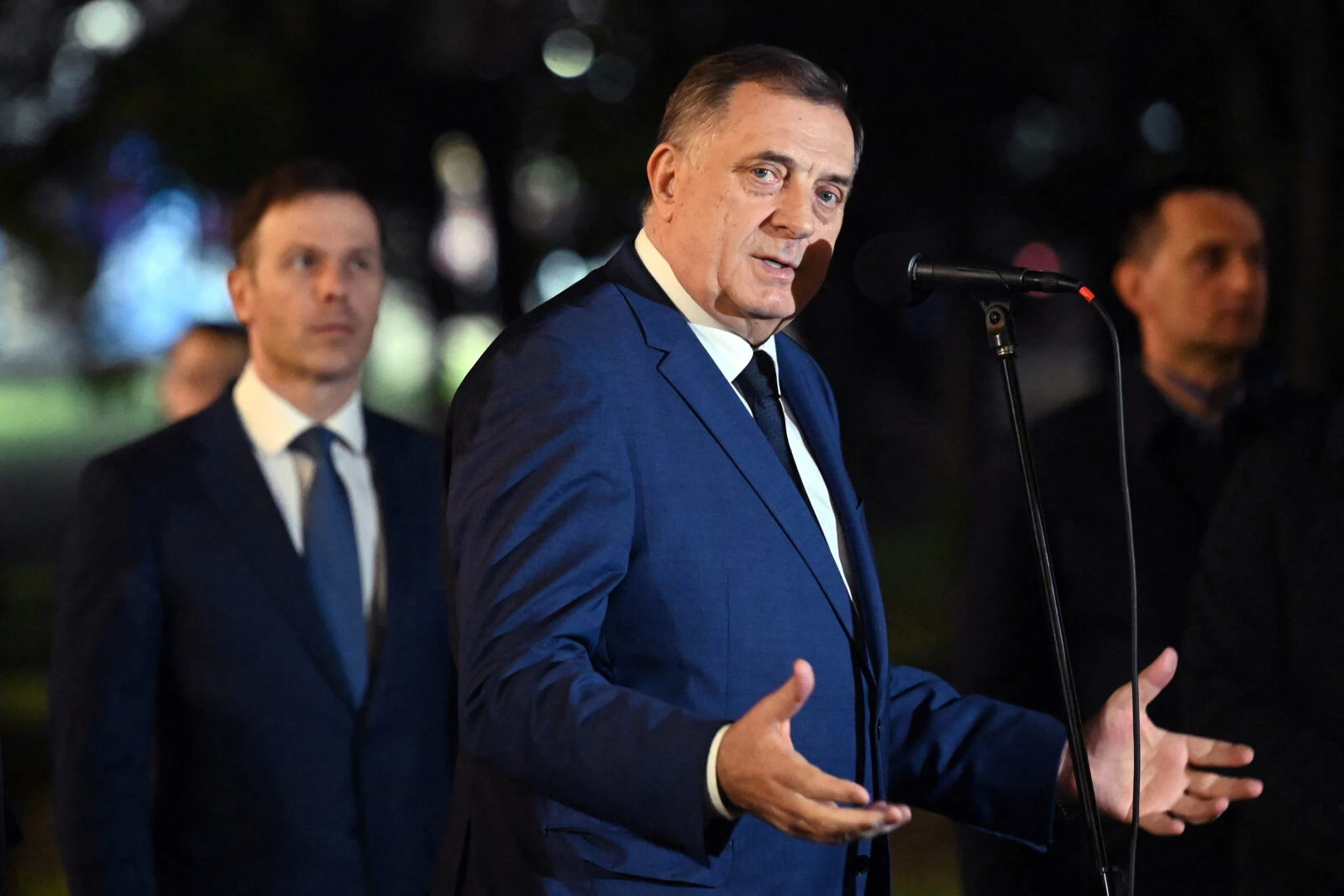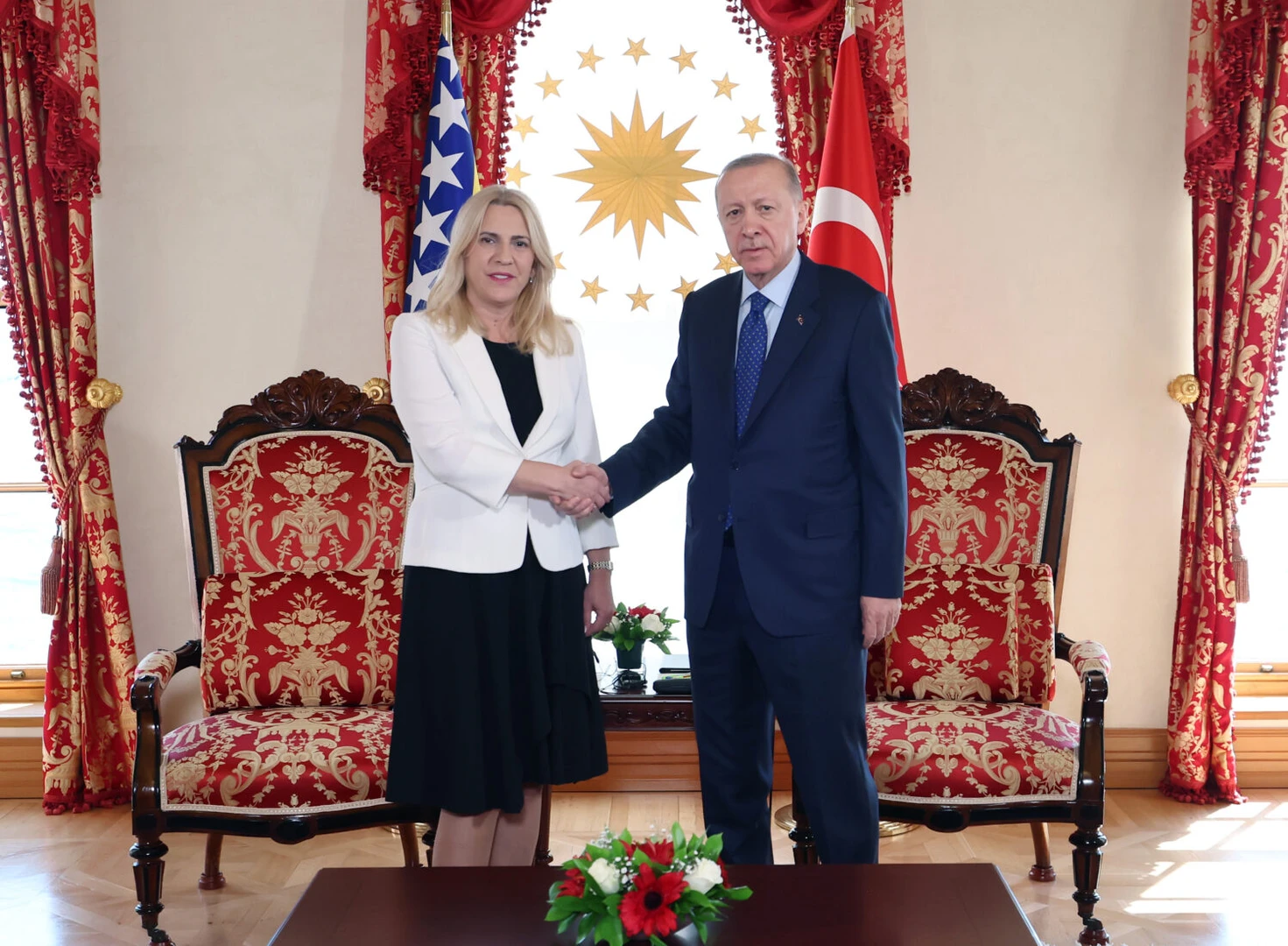Bosnia issues international arrest warrant for Milorad Dodik over constitutional violations
 Bosnian Serb leader Milorad Dodik attends a press conference in Banja Luka, on March 12, 2025 (AFP Photo)
Bosnian Serb leader Milorad Dodik attends a press conference in Banja Luka, on March 12, 2025 (AFP Photo)
Bosnia and Herzegovina issued an international arrest warrant on Thursday for Milorad Dodik, the leader of the Serb entity Republika Srpska (RS), accusing him of defying the country’s constitution. Dodik is currently in Israel, where he is attending a conference on combating antisemitism.
Arrest warrant for Dodik and Stevandic
The Bosnian Prosecutor’s Office also issued a similar warrant for Nenad Stevandic, the speaker of the RS National Assembly. Stevandic returned to Bosnia and Herzegovina on March 18 after a visit to Serbia.
Both Dodik and Stevandic are accused of using their high-ranking positions to travel abroad without following the proper border control procedures after domestic arrest warrants were issued.
“Both individuals could be abroad at any given moment, which provides grounds for action,” the state court said in a statement, adding that the matter has now been referred to Interpol.
Dodik and Stevandic are facing accusations of attacking Bosnia’s constitutional order, with an arrest warrant issued for their actions within Bosnia and Herzegovina. Dodik, a prominent ally of the Kremlin, has long been a proponent of separating RS from Bosnia, which has led to tense relations with the central government.

Dodik’s defiance and current actions
Dodik’s actions have consistently challenged the authority of Bosnia’s central government. He has refused to comply with decisions made by Bosnia’s constitutional court and has taken steps toward increasing the independence of RS, including creating new laws and institutions.
Dodik recently stated that he was visiting Israel, a country he expressed admiration for. “I started a visit to Israel, a country whose strength, history, and determination I deeply respect,” Dodik wrote on social media.
Legal and political tensions in Bosnia
Bosnia’s complex political structure, established after the 1992-1995 war, divides the country into two semi-autonomous entities: the Serb-led Republika Srpska and the Muslim-Croat Federation.
Both entities have their own governments and parliaments, but they share weak central institutions.
Tensions have intensified following Dodik’s sentencing to a one-year prison term and a six-year ban from holding office for defying the authority of Christian Schmidt, the international envoy overseeing the peace agreement that ended the war.
Despite the ruling, Dodik continues to press for greater autonomy for RS, even suggesting that the entity may eventually hold a referendum on its future.

Regional and international reactions
Dodik’s controversial actions have not only drawn domestic criticism but have also sparked concerns abroad.
The international community, including the European Union and neighboring countries, has expressed alarm over the political situation in Bosnia and Herzegovina.
In response to Bosnia’s growing political crisis, the country’s leadership, including Bosniak and Croat officials, has called for greater unity and respect for the constitution.
President Recep Tayyip Erdogan recently emphasized the importance of Bosnia’s territorial integrity and constitutional order during a call with Bakir Izetbegović, the leader of Bosnia’s Democratic Action Party

Ongoing political crisis in Bosnia
As Dodik and other RS leaders defy the central government, Bosnia faces an uncertain future.
The country’s fragmented political landscape, combined with regional divisions, continues to fuel instability. With the international arrest warrants now issued for Dodik and Stevandic, the political tension in Bosnia remains high, and it is unclear how this will affect the country’s future governance.



